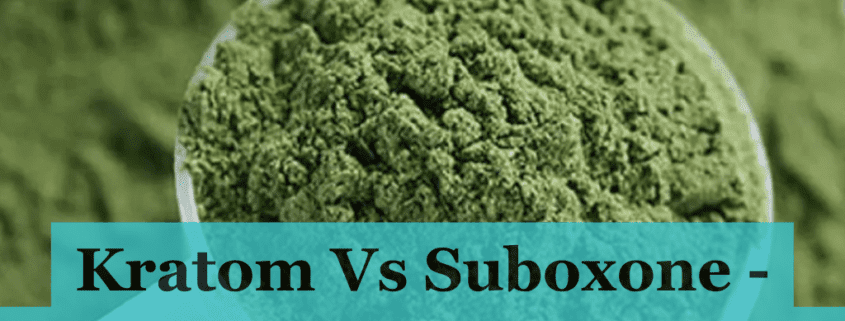Exploring the Relationship: Kratom and Suboxone – Benefits, Interactions, and Alternatives
Kratom and Suboxone are two substances that have gained a lot of attention recently. They have been used to manage pain and treat opioid addiction, yet their safety and effectiveness are still debated.
Kratom is a natural plant native to Southeast Asia, traditionally used for its analgesic and mood-enhancing effects. Suboxone is a prescription medication containing buprenorphine and naloxone, which helps to reduce withdrawal symptoms and cravings in people addicted to opioids.
Kratom’s potential to relieve pain without addiction or respiratory depression has made it popular. However, scientific research on its safety and efficacy is limited, making experts disagree on its use. Some believe it can be used for opioid withdrawal and pain management, but others think it could be abused and have adverse effects.
Suboxone, however, is an established medication used in MAT programs for opioid addiction. It binds to the same brain receptors as opioids but with less euphoria and lower overdose risk. It’s usually prescribed with medical supervision and proper monitoring to ensure safe use.
The history of these substances reveals why they’re currently so controversial. Kratom has been used for centuries in traditional medicine in Southeast Asia. But, its rising popularity means misuse and health risks are being worried about, causing some places to restrict or ban its use.
Suboxone was created to address the opioid epidemic and was approved by the FDA in 2002 as a treatment for opioid addiction. It has become an essential part of addiction programs, helping many people take control of their lives.
Kratom vs. Suboxone: Similarities and Differences
Kratom and Suboxone have both similarities and differences. It’s crucial to understand these distinctions to make the right choice. A comparison, presented in a table, of the two substances can help to differentiate between them.
Kratom originates from Southeast Asia and is used traditionally for medicinal purposes. Suboxone is a pharmaceutical drug used to treat opioid addiction. Kratom is composed of natural plant matter, while Suboxone is a synthetic compound.
Kratom can have stimulating or sedative effects, depending on dosage. Suboxone reduces withdrawal symptoms. The legality of Kratom varies by country, while Suboxone is a prescribed medication.
Using Kratom and Suboxone should only be done after consulting a professional. Low doses of Kratom are suggested. Suboxone should be taken as part of an addiction treatment program and in accordance with the prescribed dosage. Healthcare professionals and counseling programs can provide support.
Any substance should be used with caution. It’s important to understand the similarities and differences between Kratom and Suboxone before proceeding. Sources should be reliable and safety guidelines should be followed.
Effectiveness and Efficacy
Kratom and Suboxone have different levels of effectiveness and efficacy—check out the table below.
| Treatment | Effectiveness | Efficacy | Side Effects |
|---|---|---|---|
| Kratom | High | Varies | Mild |
| Suboxone | Moderate | Strong | Common |
Make an informed decision—know the facts before you decide!
Safety and Potential Risks
Kratom and Suboxone have both become topics of conversation when it comes to addiction treatment. But, there are several safety and potential risks to consider.
- Interactions: Combining Kratom and Suboxone can lead to dangerous effects on the central nervous system, such as respiratory depression or sedation.
- Withdrawal Symptoms: Kratom is not a full opioid agonist like Suboxone. So, when stopped, Suboxone may cause withdrawal symptoms as the brain adjusts.
- Risk of Overdose: Taking too much or mixing them with other substances can lead to overdose.
- Lack of Regulation: Quality control and regulation of Kratom products is poor, meaning potency and contamination can vary.
- Dependence and Addiction Potential: Kratom itself can be addictive, leading to dependence or addiction if misused.
Research on their combination is limited, so these risks are not well understood. A doctor can provide tailored advice based on individual circumstances. Experimenting without medical supervision is not recommended due to adverse effects.
Your health is the priority. Get guidance from experts who can help you make the best decisions. Taking action now can prevent any risks or complications in the future.
Personal Experiences and Testimonials
Individuals have had mixed reactions when taking kratom and Suboxone. Some have found it useful for reducing opioid withdrawal symptoms and even claim it helped them control their lives again. However, some report negative effects including increased anxiety or drowsiness. Some don’t notice any changes. It is worth noting that everyone’s bodies and responses to substances differ.
Also, you must take into consideration dosage and potential interactions with other medications. So, it is recommended to consult a healthcare professional prior to incorporating kratom into your Suboxone treatment plan. They can offer tailored advice based on your unique circumstances.
Conclusion
Kratom and suboxone are both highly discussed in the medical world. Kratom is an herbal supplement believed to help with pain and opioid withdrawal symptoms, while suboxone is a medication used to treat opioid addiction.
Research on how kratom and suboxone interact is limited, leaving many questions. Even though some people claim to have used kratom to stop taking suboxone, it is important to be careful.
These substances work on the same brain receptors so there could be bad effects if they are used together. Additionally, kratom may not fix the root of the addiction.
Due to the lack of studies, it is best to talk to a healthcare professional before trying any self-medication or alternatives. They can provide personal advice and direct individuals to evidence-based treatments.
It is most important to protect your health. It is dangerous to trust unregulated products that promise fast results but can be risky. By asking for help, individuals can make responsible decisions about their health and explore the best options for their recovery.
In conclusion, kratom may be a helpful addition for opioid dependence, but more research is needed on its safety. The safest way to recover is to use medication-assisted treatment with a healthcare provider. The road to recovery may be hard but being educated and using evidence-based methods will help one reach a better outcome.
Frequently Asked Questions
1. Can I take kratom while on suboxone?
Yes, it is generally safe to take kratom while on suboxone. However, it’s important to consult with your healthcare provider before combining these substances.
2. What are the potential interactions between kratom and suboxone?
Kratom and suboxone may have additive effects, as both substances interact with opioid receptors. It’s important to be cautious and start with low doses if you decide to use them together.
3. Can kratom help with suboxone withdrawal symptoms?
Kratom has been reported to help alleviate some suboxone withdrawal symptoms, such as cravings and anxiety. However, individual experiences may vary, and it’s important to seek professional guidance during the withdrawal process.
4. Can I switch from suboxone to kratom for opioid dependence treatment?
Switching from suboxone to kratom should only be done under the supervision of a healthcare provider. Abruptly stopping suboxone can lead to severe withdrawal symptoms, and a proper tapering schedule may be necessary.
5. Are there any risks associated with combining kratom and suboxone?
Combining kratom and suboxone may increase the risk of respiratory depression and sedation. It’s crucial to follow the recommended doses and guidelines provided by your healthcare provider.
6. Is it safe to take kratom and suboxone together in the long term?
There is limited research on the long-term safety of combining kratom and suboxone. It’s advisable to use these substances under medical supervision and to discuss any concerns or potential side effects with your healthcare provider.
Disclaimer: “Please note that the information provided in our marketing materials about Kratom is for educational purposes only and should not be considered as medical advice or a substitute for professional medical consultation. Kratom is not intended to diagnose, treat, cure, or prevent any disease. Always consult with a qualified healthcare professional before using Kratom or any other herbal supplement, especially if you have pre-existing health conditions or are taking medications. Individual experiences with Kratom may vary, and it is essential to use it responsibly and in accordance with local laws and regulations.”
You can acquire premium Kratom products at budget-friendly rates from Cheap Kratom Kilos. Explore our blog for further insights and information.




Leave a Reply
Want to join the discussion?Feel free to contribute!